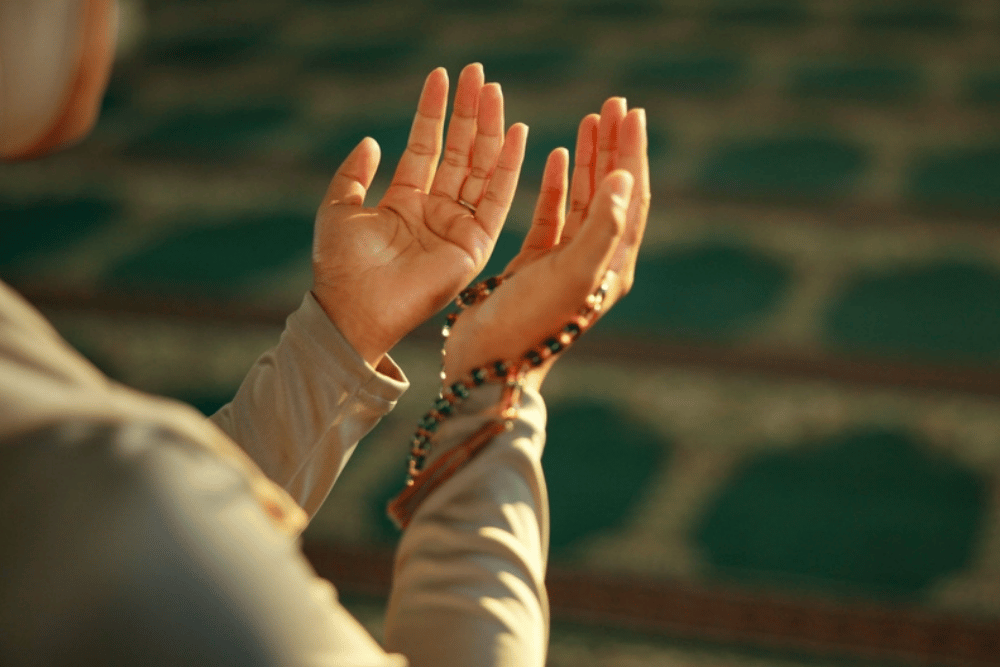Introduction
We all get angry, it’s just part of being human. But how we handle that anger makes all the difference. The Prophet Muhammad ﷺ faced all kinds of situations that could have made anyone lose their temper, yet he remained calm, patient, and in control. His teachings aren’t about suppressing anger but about managing it in a way that leads to better outcomes. By looking at his life and advice, we can learn how to deal with anger in a way that brings peace instead of regret.
Controlling Anger for Societal Good
If we want to see a society full of good people-individuals who contribute positively and act ethically-then the starting point lies in controlling anger. Anger is often the root of many societal problems. Without addressing it, people’s actions can become destructive, both on an individual level and for society as a whole. The Messenger of Allah ﷺ emphasized the importance of controlling anger as the first step to personal and societal goodness. Just as you would clean your house, but the filth keeps coming in from a broken pipe, anger is the “source” from which many negative actions flow. Until we address and control this inner source, no amount of cleaning or external effort will prevent harm.
Anger as a "Powerful Animal”
To understand the power of anger, consider the analogy of controlling a powerful animal. If you control the reins of the animal, it can be a great and useful companion. It can run fast when needed, and stop when commanded. But if the animal is wild and uncontrollable, you will find yourself at its mercy, falling and being dragged along. This is how anger works.
When controlled, it can be used for good; but when it gets out of hand, it can wreak havoc. A person who has no control over their anger is like someone riding a wild beast that does not listen to its rider.
Anger: Not an Inherently Bad Trait
It’s important to note that anger in itself is not bad. In fact, anger is an emotion that signifies a person’s ability to distinguish between right and wrong. Imam Shafi’ رحمة الله عليه is quoted as saying that a person who doesn’t feel anger in the face of injustice or wrongdoings is like a donkey-unable to discern between what is right and wrong.
This shows that anger is a necessary and natural response to wrong. If a person does not feel anger when they see injustice, they lack understanding and the ability to recognize what is good and evil.
However, just as having no anger at all is a flaw, excessive anger that causes a person to transgress boundaries and commit sinful acts is also a flaw. The right way is to use anger in the proper context, at the right time, and with the right measure. Anger should be used to correct wrongs, but it should never go beyond that to the point where it causes harm or leads to sin.
Anger: One of Allah's Attributes
Anger, as an attribute of Allah, is not inherently bad. Allah Himself is described as having anger, but His mercy always prevails over His anger. In fact, Allah has said, “My mercy will prevail over My anger,”
Messenger of Allah ﷺ said,
لَمَّا خَلَقَ اللَّهُ الْخَلْقَ كَتَبَ فِي كِتَابِهِ ـ هُوَ يَكْتُبُ عَلَى نَفْسِهِ، وَهْوَ وَضْعٌ عِنْدَهُ عَلَى الْعَرْشِ ـ إِنَّ رَحْمَتِي تَغْلِبُ غَضَبِي
“When Allah created the Creation, He wrote in His Book–and He wrote (that) about Himself, and it is placed with Him on the Throne–‘Verily My Mercy overcomes My Anger.'”
(Saheeh al Bukhari, Kitaab at Tawheed, Hadith 7404)
And this principle is reflected in the Qur’an in verses such as Surah Al-Fatiha, where Allah’s mercy Ar-Rahmaan Ar Raheem is mentioned before His justice Maaliki-Yawm-Id-Deen.
Allah’s mercy is infinite, and even when He is angered by wrongdoing, His mercy supersedes that anger. This is a crucial understanding: anger, when used correctly, is part of the divine balance, but it must always be tempered with mercy.
When a person experiences anger, they may act out unjustly, speaking falsehoods, insulting others, or engaging in harmful actions. Anger can cloud Judgement, causing a person to act recklessly, without thinking about the consequences. Afterward, they may regret their actions, realizing the harm they’ve caused, but it is often too late. This is why controlling anger is so critical—it prevents these destructive reactions and helps the individual avoid regret.
Prophets and Anger
It’s also important to understand that while anger itself is not inherently bad, the Prophets of Allah were protected from misusing anger. They were infallible and shielded by Allah’s guidance, so their anger did not lead to wrong actions.
A famous Hadith demonstrates this:
‘Abdullaah ibn ‘Amr رضي الله عنه reported: I used to write down everything I heard from the Messenger of Allah ﷺ in order to memorize it. The Quraysh prohibited me, saying: “Do you write down everything that you hear from the Messenger of Allah ﷺ while the Messenger of Allah ﷺ is a human being who speaks in anger and pleasure?” So, I stopped writing and mentioned that to the Messenger of Allah ﷺ. Thereupon, he pointed his finger to his mouth and said:
اكْتُبْ فَوَالَّذِي نَفْسِي بِيَدِهِ مَا يَخْرُجُ مِنْهُ إِلاَّ حَقٌّ
“Write down; for by the One in Whose Hand my soul is, nothing comes out of it except the truth.”
(Sunan Abi Dawood, Kitaab al Ilm, Hadith 3646)
He did not say, “I do not get angry”. This statement shows that the Prophet’s speech, even in moments of anger, was always just and truthful. Unlike ordinary humans, the Prophet’s anger never led him to speak falsely or act unjustly. This shows that anger, in its rightful place, is not bad; it is only harmful when it leads to wrong actions or words.
The Real Issue with Anger
The issue with anger arises when it leads to unjust actions-when a person, in the heat of anger, speaks lies, insults others, or commits acts of oppression. Anger should not be directed at trivial matters or personal frustrations. Instead, it should be reserved for injustice, wrongdoing, and oppression. When anger arises from things that don’t truly deserve it, it becomes harmful. But when it is channeled properly, it can serve to uphold justice, protect rights, and right wrongs.
Controlling anger is the first and most important step in becoming a good person and fostering a good society. While anger is a natural and necessary emotion, it must be controlled and used correctly. The Prophet’s teachings remind us that anger, when controlled and used with wisdom, can be a positive force. It is a tool for correcting injustice, but it must be tempered with mercy and guided by the principles of truth and justice. The key is balance-anger should never overpower a person’s capacity for mercy, patience, and fairness. By learning to control our anger, we can avoid harm, preserve our relationships, and contribute positively to society.
Properly Directed Anger
When anger is justified, it should be directed toward things that truly deserve it. For example, if a child is not performing their religious duties, such as not praying, it is natural for a parent to feel anger. This anger should motivate the parent to correct the child’s behavior and help guide them toward better practices. Similarly, if a spouse is neglecting their religious obligations or violating Allah’s commands, that too may rightfully provoke anger. In such cases, the anger is not sinful as long as it is directed toward correcting the wrong behavior, not toward the person themselves.
However, it is important that the anger is controlled and focused on the issue at hand, without leading to injustice or harm. If someone is angry at themselves for a personal failing, such as not fulfilling their own duties or making a mistake, this self-reflection and the accompanying anger can be useful for improvement, as long as it leads to positive change and growth.
The Incident of Mu'adh ibn Jabal رضي الله عنه
A relevant example from the time of the Prophet ﷺ is the incident involving Mu’adh ibn Jabal رضي الله عنه. Mu’adh would pray the Isha prayer behind the Prophet ﷺ and then go to lead his tribe in prayer, where the prayer was voluntary (Nafi) for him but obligatory (Fard) for his followers. One day, a man complained to the Prophet ﷺ about the length of the prayer, as Mu’adh was reciting long Surahs, including Surah Al-Baqarah, which is the longest Surah in the Quran. The man was exhausted and left the prayer. The Imaam, in anger, rebuked him for leaving, calling him a hypocrite or something. When the man later returned to the Prophet ﷺ and shared his grievance, the Prophet became angry not at the man, but at the Imaam for making an unjust statement.
The Prophet ﷺ said to him,
أَفَتَّانٌ يَا مُعَاذُ أَفَتَّانٌ يَا مُعَاذُ أَلاَ قَرَأْتَ بِـ { سَبِّحِ اسْمَ رَبِّكَ الأَعْلَى } وَالشَّمْسِ وَضُحَاهَا وَنَحْوِهِمَا
“O Mu’adh; do you want to cause hardship to the people, O Mu’adh? Why don’t you recite: ‘Glorify the Name of your Lord, the Most High’ and ‘By the sun and its brightness’ and the like?'”
(Sunan an Nasai, Kitaab al Iftitaah, Hadith 984)
The Prophet ﷺ corrected the Imam, advising him not to make it difficult for others. He emphasized that those leading the prayer should consider the condition of the people, especially those who are traveling or not accustomed to lengthy prayers. This highlights how anger can be justified when directed toward correcting a wrong action or behavior, such as creating unnecessary difficulty for others.
The Prophet's Approach to Anger
Another example comes from the incident in which a man urinated in the mosque.
Anas b. Malik reported: While we were in the mosque with Allah’s Messenger ﷺ, a desert Arab came and stood up and began to urinate in the mosque. The Companions of Allah’s Messenger ﷺ said: Stop, stop, but the Messenger of Allah ﷺ said: Don’t interrupt him; leave him alone. They left him alone, and when he finished urinating, Allah’s Messenger ﷺ called him and said to him: These mosques are not the places meant for urine and filth, but are only for the remembrance of Allah, prayer and the recitation of the Qur’an, or Allah’s Messenger said something like that. He (the narrator) said that he ﷺ then gave orders to one of the people who brought a bucket of water and poured It over.
(Saheeh al Muslim, Kitaab at Tahaarah, Hadith 284)
While the companions were ready to reprimand the man harshly, the Prophet ﷺ prevented them from doing so and allowed the man to finish his act. Afterward, he gently advised the man that the mosque is a place of worship and should be treated with respect. This shows that the Prophet’s anger, when it was directed, was rooted in the preservation of the sanctity of the mosque. His calm and wise handling of the situation shows that anger can be used effectively, but only when it serves a purpose and is measured.
This also illustrates that while the Prophet ﷺ became angry when necessary, his anger was always purposeful and controlled. He never allowed it to lead to injustice, harshness, or inappropriate actions. Even when addressing wrongs, the Prophet’s actions demonstrated wisdom and mercy.
Anger and Justice
The Prophet ﷺ also highlighted that scholars or leaders should be cautious about issuing rulings or fatwas when angry. Anger can cloud judgement, and when decisions are made in haste or out of frustration, they may lead to injustice. Therefore, one must always ensure that anger does not overwhelm reason or fairness. In situations where anger is high, it may be better to pause and reflect before making any final decisions.
Managing Anger Properly
Again, anger itself is not inherently wrong. It is a natural human emotion that, when channeled properly, can drive positive actions and corrections of wrongs. The key lesson is that anger should be directed in the right way and at the right things. It should be used to correct injustice, help those in need, or guide others toward better behavior. However, when anger is misdirected-such as blaming others unfairly, allowing personal frustrations to spill over onto innocent people, or using anger to justify harmful actions—it becomes problematic.
The Prophet ﷺ serves as the ultimate model for managing anger. His example shows us that while anger can be a powerful motivator, it must always be tempered with wisdom, mercy, and fairness. By understanding the causes of anger, its rightful use, and its potential consequences, we can ensure that our actions remain just and balanced. Thus, managing anger effectively is a crucial part of personal development and social harmony.
Conclusion
Islam doesn’t say that anger is always bad, it just teaches us how to handle it the right way. Anger, when controlled, can be a powerful force for standing up against injustice. But if left unchecked, it can lead to harm and regret. The Prophet Muhammad ﷺ showed the perfect balance, he never let his anger lead to unfairness or cruelty. His life teaches us that real strength isn’t about overpowering others but about staying in control when emotions run high. If we follow his example, we can learn to channel our anger wisely, making sure it leads to fairness, patience, and mercy rather than mistakes we wish we could take back.




